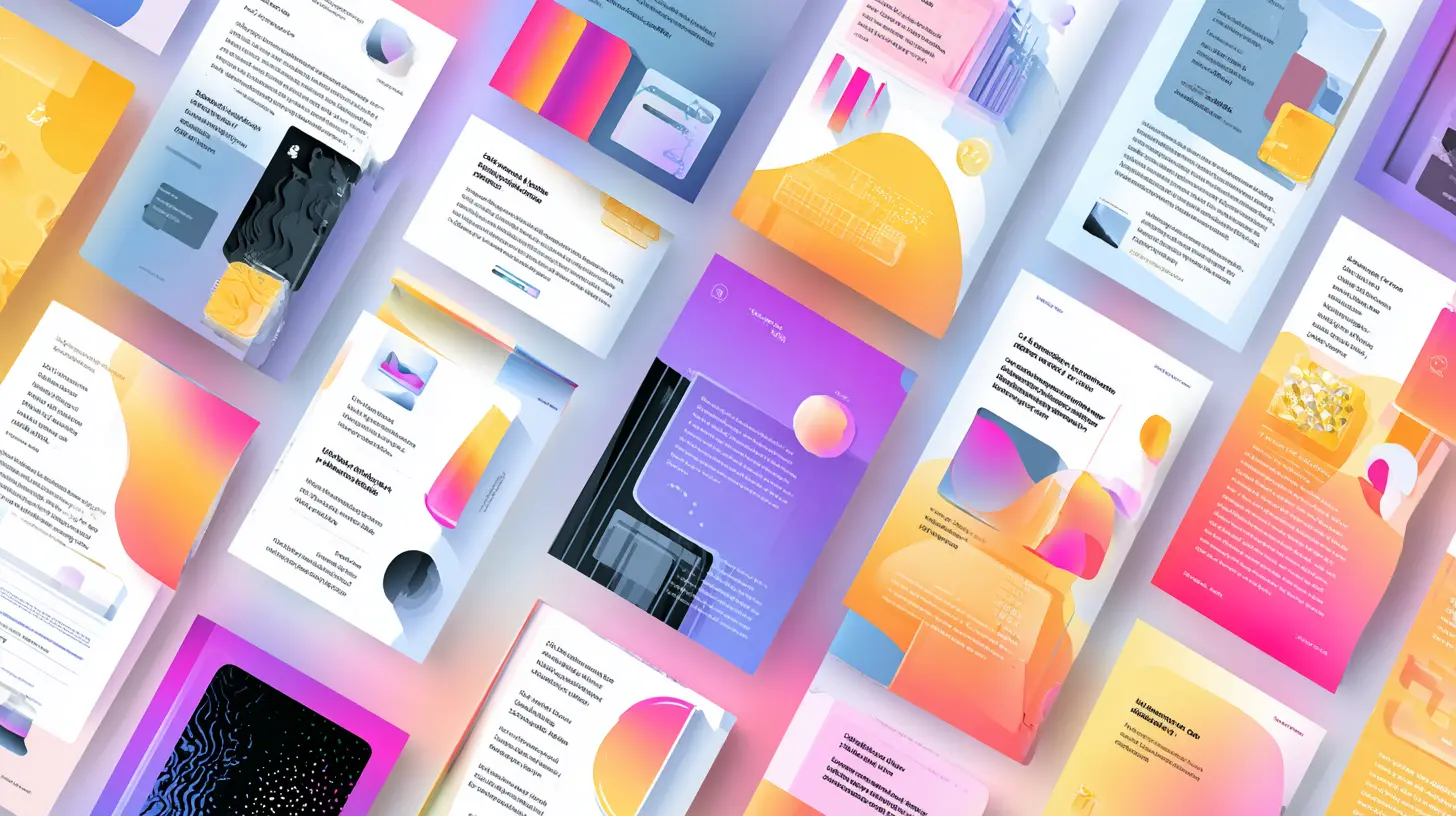Making a career change into UX/UI is a big decision, and there are a lot of options out there. Both Designlab and CareerFoundry offer bootcamp programs to help aspiring designers transition into the UX/UI design field. While it may seem that Designlab’s UX Academy and CareerFoundry’s UX Design course are similar, there are many differences to help select which is the right course for your goals.
We’ll take a closer look at these two programs, delving into cost, structure, timeline, support, and more.
- Coursework & Structure
- Mentorship
- Community Offerings
- Pricing & Financing
- Graduate Support
- Conclusion
Coursework & Structure
Designlab and CareerFoundry both offer a robust curriculum when it comes to UX/UI education. Structurally, there are similarities in how the material is approached: it’s asynchronous and flexible, fully online, and curated in a way that students can access the coursework when is best for their schedules. Both programs also offer a variety of tracks, so learners can commit to a more rigorous full-time schedule, or choose to work through the materials over a longer period part-time.
Additionally, both programs support the creation of capstone projects through hands-on portfolio development, to ensure that graduates have work to showcase to potential employers upon completion of the course. Below, you can find some comparative examples of key facets of each program.
- Designlab provides a holistic curriculum that encompasses both UX and UI design. This means that all students who graduate from UX Academy will have an understanding of UI design principles and how to incorporate them into their design workflow. CareerFoundry offers UI development; however, it is an optional add-on at the end of the course, and students must select this from a variety of choices to add to their education.
- All Designlab graduates will complete the program with at least three portfolio projects, one of which is end-to-end. While students in CareerFoundry’s program do complete comprehensive case studies, some graduates only have two projects, showcasing a less robust amount of work.
- Designlab offers a fully self-paced option for the bootcamp curriculum. While CareerFoundry does offer two flexible options of part-time and full-time, the longest timeline that is offered is 10 months. At Designlab, students can opt for part-time, full-time, or self-paced up to 18 months, ensuring a variety of different routes to success.

Mentorship & Feedback
Designlab and CareerFoundry both offer support from industry professionals through mentorship programs, which allow students to receive feedback and guidance throughout the curriculum. A mentor can help learners understand what needs to be improved in their project work, and what’s going really well. They will be there during both the process of learning UX/UI and through creating a full UX design portfolio.
While both programs offer robust mentorship, there are significant differences between how Designlab and CareerFoundry approach providing mentors for their students. Let’s take a deeper look at some of the key differentiators.
- Students work with an expert mentor at Designlab in a 1:1 capacity, who provides feedback on coursework and also meets with students for video calls at a weekly cadence. CareerFoundry offers a slightly different approach, where students have a mentor and a tutor, with the tutor being the individual who leaves a significant amount of feedback on submitted work. While dual support could have some benefits, the main drawback is that tutors tend to have less industry experience than mentors. At Designlab, all mentors are industry professionals with significant experience in the field, with at least 3-5 years working in UX (and oftentimes more).

- Both programs have a large pool of mentors for students to be paired with, allowing for learners to be matched with someone with whom they’re comfortable and compatible. However, Designlab does have a unique aspect to their matching system for UX Academy in which students are asked about learning and feedback preferences ahead of being assigned a mentor, laying the groundwork for a strong relationship.
- A key difference between Designlab and CareerFoundry is offering Group Crits. Group Crits are a phenomenal way for students to receive feedback from both experts and peers and learn to defend their design decisions in a dynamic environment. All Designlab students are required to attend Group Crits throughout their time in UX Academy. These sessions, led by an industry professional, offer a unique opportunity to receive additional feedback on the progression of coursework.
Community Offerings
Designlab and CareerFoundry both offer a variety of ways for students to connect with one another. This is a highly positive aspect of both programs, as online learning can often feel isolating without a community to tap into. Both bootcamps utilize messaging platforms such as Slack or Discord to connect learners with one another and promote mutual learning. Additionally, both CareerFoundry and Designlab have community events where individuals can learn new skills and tap into useful information. However, there are core differences between the two.
- Both programs have an online community for students, with Designlab using Discord and CareerFoundry offering theirs through Slack. This is a fantastic opportunity for remote learners to connect with their fellow learners. However, Designlab offers some unique aspects in their Discord space, with Community Advocates monitoring Discord channels to help answer questions and offer support throughout the day. Additionally, Designlab holds weekly Study Halls for students in Discord, which are live sessions where individuals needing help or guidance can hop in to receive feedback on their work or ask questions. This adds another layer to the support provided through the community.
- Both Designlab and CareerFoundry have the benefit of free events where attendees can learn more about UX design. However, because CareerFoundry offers a multitude of programs, many of their talks are geared toward areas of development that are potentially not relevant to UX/UI Designers. Since Deisgnlab is exclusively focused on Design, all community events are centered around topics that will be relevant to the world of UX/UI.
[MID_ARTICLE_CTA]
Pricing & Financing
Pursuing a career change is a financial commitment, and it’s important to find a payment structure that works for you. Designlab and CareerFoundry are offered at fairly similar price points: the cost for Designlab’s upfront payment is $8,499 USD and CareerFoundry’s is $7,500.
Both programs offer a variety of payment options, both internally through their own structures and in partnership with outside loan organizations. However, there are a couple of differences between financing options.
- Designlab offers a multitude of scholarships every month, from $1,000 to 50% of tuition, as well as some partnerships that assist students with full tuition coverage. CareerFoundry does offer some scholarships, but these appear to be discretionary and on a less consistent basis, with no full scholarship funding available.
- CareerFoundry mentions a discount on its website for military personnel and veterans. Designlab offers this as well, in conjunction with discounts for students and educators.
Graduate Support
Designlab and CareerFoundry both offer robust programs from graduates of their bootcamp program, ensuring that individuals are supported upon completion of their studies. Career coaching, post-graduate coursework to help guide you through the application process, and tools to help you track your job search. However, there are aspects of graduate support that vary between the two.
- Both CareerFoundry and Designlab offer coaching for their students to assist them in landing a job after they graduate. However, Designlab offers additional feedback services in their form of group sessions hosted by industry experts. These sessions are hosted by some of our top mentors. One set of sessions focuses primarily on portfolio review, iteration, and feedback, allowing for students to continue to refine and expand their portfolio even after completing the bootcamp. Another is dedicated to key topics such as networking and navigating the job market, preparing students more robustly for their job hunt and offering continued connectivity and support.
- On CareerFoundry’s site, they state that you’ll have access to their Job Prep course for up to six months after graduation, and can continue to work with their career coach after being hired. Designlab offers both of these perks; however students will have lifelong access to their Career Services materials.
Conclusion
Both Designlab and CareerFoundry offer strong, comprehensive programs in the UX Design for individuals looking to make a career change. They are both well-established in the space, and offer a variety of ways for students to develop their skillset, be supported by experts, and connect with others within the community. However, it’s important to understand the differences between the two, so that you can select which program is best for you, your learning style, and your goals!

Deciding which program is the right one can be a daunting task. If you’re considering enrolling in a bootcamp, we highly recommend checking out Designlab’s UX Academy webinar or scheduling a call with our of our Admissions reps.
We also encourage you to check out the articles below to learn more about us, our graduates, and our community.
How Designlab Mentorship Supports Your Success
How Tulsa Found Fullfillment in Purposeful Design
How the Designlab Community Supports Your Learning



.svg)









.webp)




